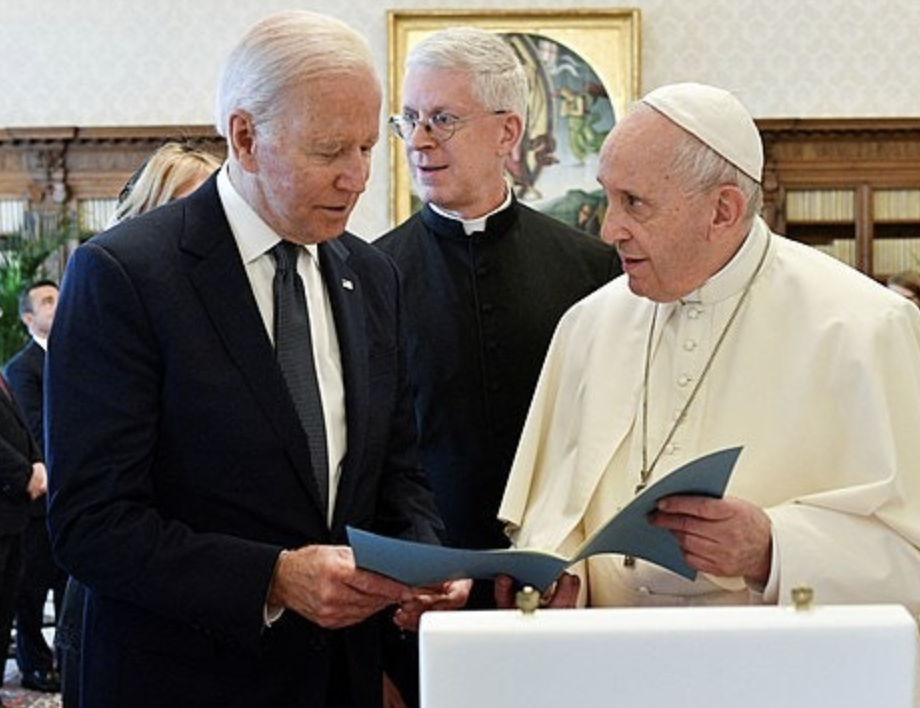As a regular part of his ministry, Archbishop Edwin O'Brien of Baltimore says Masses on behalf of Catholics who have left the church.
The unique element of these rites is that he offers his prayers for anyone he has – during his 45 years as a priest, with or without knowing it – driven away from Catholic pews and altars.
This isn't the kind of ecclesiastical issue that makes headlines.
Nevertheless, this is a quiet kind of crisis that priests must take seriously, said O'Brien, in a Franciscan University forum that included current and potential seminarians. How many lapsed or former Catholics, he asked, slipped away because they felt "talked down to or lectured at by preachers or confessors who don't really know them or who appreciate how difficult their struggles are just to get through life?"
How many, he added, are haunted by a clergy comment, "often at an emotional time in their lives," that wounded them so deeply they became convinced that it justified leaving the church? How many drifted away to Protestant megachurches because of "our dull, lifeless and irrelevant homilies."
The priesthood has faced many crises during the past generation or two and O'Brien offered no easy solutions.
Obviously, he couldn't ignore three decades of scandals caused by the sexual abuse of thousands of children and young people by priests and bishops. O'Brien also discussed the hierarchy's problems finding new priests, yet avoided the stark statistics that are so familiar to American Catholics. In 1965 they had 58,000 priests. Now there are about 40,000 and, if trends stay the same, there will be 31,000 in a decade, with most over 65 years of age.
While these crises dominate the news, O'Brien stressed that Catholic leaders cannot overlook the personal challenge of helping potential seminarians struggle with this timeless question: Does God want me to be a priest? As a former seminary leader, in the New York archdiocese and in Rome, O'Brien said he has added a more nuanced set of follow-up questions.
"Why are you living your life here and now?", he asked the audience at his late-2010 lecture on the Steubenville, Ohio, campus. "What is your radical motivation? Are you here on this earth to give or to get?"
The cultural changes that rocked Catholicism after the 1960s made it even more of a challenge to answer these kinds of questions. O'Brien saw this era up close, since he was ordained in 1965 and, as an Army chaplain with the rank of captain, served a tour of duty in Vietnam.
In the "heady years" after the Second Vatican Council it seemed that Catholics "saw almost everything go up for grabs" in their parishes and "in Western Culture in general." Priests were "leaving by the droves" and at times, he noted, it seemed as if "follow your conscience" stood alone as the "only criterion for morality, heedless of any objective moral truth." Many seminaries lowered their admissions requirements in an attempt to find more priests.
O'Brien offered a blunt analysis of that decision: "Many of the horrendous sexual scandals, I think, can be traced to the breakdown of seminary formation from 1965 to the early 1980s."
The continuing aftershocks are familiar to priests who keep trying to defend church teachings and traditions. The archbishop noted that a recent survey by the Pew Forum on Religion & Public Life found that 45 percent of Catholics didn't know that their church believes that the bread and wine consecrated during the Mass are not mere symbols, but become the body and blood of Jesus Christ. A survey commissioned by the Knights of Columbus found that 82 percent of Catholics between the ages of 18 and 29 agreed with this statement: "Morals are relative, that is, there is no definite right and wrong for everybody."
This is sobering, but Catholics must not lose hope, said O'Brien. God will raise up priests who are willing to wrestle with ancient and modern questions while serving in what the archbishop called a "post-Christian" culture.
A missionary bishop in an earlier era, he noted, stated the challenge this way: "The task of a missionary is to go to a place where he is not wanted to sell a pearl whose value, although of great price, is not recognized, to a people who are determined not to accept it – even as a gift."


